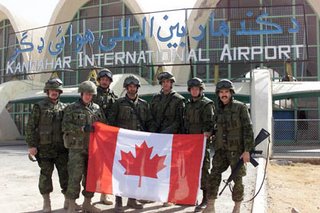 Today marks the 31st time that I celebrate the birth of the wonderful country I had the immense fortune of being born into. Unlike previous years, however, where I would gather with friends in Quebec City, Montreal, or on Parliament Hill in Ottawa to watch the fireworks and drink Canadian beer (once I had reached legal drinking age, needless to say), the celebration this year is much more sober, consisting of Japanese Kirin Ichiban beer (nothing says happy birthday Canada like Japanese beer) and a quiet evening at home. And, oh, I also happen to be 9,579 kilometers away from the point in Canada closest to Taiwan.
Today marks the 31st time that I celebrate the birth of the wonderful country I had the immense fortune of being born into. Unlike previous years, however, where I would gather with friends in Quebec City, Montreal, or on Parliament Hill in Ottawa to watch the fireworks and drink Canadian beer (once I had reached legal drinking age, needless to say), the celebration this year is much more sober, consisting of Japanese Kirin Ichiban beer (nothing says happy birthday Canada like Japanese beer) and a quiet evening at home. And, oh, I also happen to be 9,579 kilometers away from the point in Canada closest to Taiwan.I have been away from Canada for seven months now, and over that period I have come to understand what it is that the many exiled thinkers—from Edward W. Said to V.S. Naipaul—meant when they wrote about the effect of exile on the individual. Distance from one’s home and immersion into another culture does, indeed, alter the manner in which one perceives the world he issues from.
Of course, my experience of exile probably differs by orders of magnitude from that of an individual who goes from, say, Kinshasa, or Kabul, to Toronto or London. For them, the contrast which results from a new, safer life underscores how ailing their country of origin really is. To mention Said again, though he built a new life for himself in New York City teaching comparative literature at Colombia University, the pull of his origins as a Palestinian always remained a powerful one, and the differences between his place of birth and the new world he had adopted were substantial ones. One was a world torn by conflict, displacement, injustice, poverty and instability; the other, a world of plenty and opportunity.
So it would be dishonest on my part to claim that the experience of exile has been on the same level as that of Said and Naipaul, who moved from Trinidad and Tobago to London. After all, I have relocated from a place of tremendous richness and opportunity, Canada, to a state (in everything but in name) whose young democracy is a healthy one and where opportunities are rife. True, there is always the distant threat of conflict across the Taiwan Strait, or the more immediate possibility that an earthquake or a typhoon will strike, but all in all, my exile has landed me in a modern state where one lacks of absolutely nothing.
All that being said, geographical and emotional distance from one’s country, regardless of the nature of the point of origin and that of arrival, still fundamentally changes how one perceives his birthplace. Ironically, my time in Taiwan has resulted in a somewhat stronger sense of nationalism (I bristle whenever I read a reference to the United States as “America”), and a belief in the importance of the Canadian experiment. More than ever, I am cognizant of the stark differences that exist between Canada and its mighty neighbor to the south, and how crucial it is that those differences be maintained. There is no homogenous “West,” in the sense that one often encounters in political discourse. Far too often, I have heard so-called political experts complain about how Canadians always come up short when they attempt to explain what it is that makes them different from Americans, and from this conclude that such failure must therefore mean that we are alike. Canada differs in many ways, from its political system to the way it engages the world to how it does a balancing act, however imperfect and costly, between socialism and capitalism.
Which brings me to the growing sense of alarm that I have experienced since I left Canada behind: namely, how, thanks to Canada’s involvement in the U.S.-led “war on terrorism,” those societal and political differences have been narrowing. It doesn’t help that in Stephen Harper Canadians have elected a leader who never hid his intentions of getting into bed with his counterparts south of the border. Even more so since the arrest, in early June, of the seventeen individuals who were allegedly planning a terrorist attack within Canada, the gap that distinguishes the Canadian experiment from the American one has been closing; more than ever, Canadian authorities, from the intelligence services to the Crown, have been behaving like those in the United States: access of the media to such items as government decision-making, the repatriation of Canadian soldiers who fell in Afghanistan, and the court proceedings of the Group of Seventeen has been curtailed to a dangerous level. Individual’s rights have been under threat, and the same type of crapulous hypocrisy and disregard for justice that has marked the Bush administration now seems to be rearing its ugly head in Ottawa. Moreover, Canadian soldiers in and around Kandahar seem to have departed from the original mission and are now, without the public’s approval or understanding of what it means to do so, engaging in what is virtually war-making, something that originally had only been the remit of U.S. soldiers.
From the benefit of my current distance, it has become increasingly obvious that Canada is losing some of its hard-earned and by no means settled identity because, since 9/11, it has been forced into, and has failed to oppose, a war that isn’t his. From its emerging type of institutional behavior to its view of the world, the Canadian government has been using the U.S.’s template as a model. In a way, Canadian authorities have failed to recognize what I stated above, that there is no “West” but rather a number of different countries located in this vague geographical area called the West. By failing to do so, our leaders have made it easy from themselves to believe such falsehoods as al Qaeda’s purported hatred of that which defines Western societies—that is, democracy, freedom of expression, a capitalist system, equal rights for women and homosexuals (if only), and so on. Systems that believe they are under siege because of those values will inevitably adopt similar means by which to defend themselves, hence the growing resemblance in how Canada has been reacting to the perceived threat of terrorism on its soil. They hate “us,” claim the powers that be—Americans, Brits, Canadians—so the only option must be to rally behind the flag of Freedom through alliances, whether that be in intelligence sharing or war-making.
 But Canada is not like the U.S., and if it is hated by some adherents to the al Qaeda ideology it certainly is not because Canada is part of the so-called West. In fact, up to recently, Canada probably didn’t register much on the terror map. Only by becoming more like what it is that al Qaeda followers despise—a United States that they perceive to be assailing what they love most, namely their religion and their land—will Canada become a likelier target for terrorism. To them, Canadian war-making in distant Afghanistan cannot be seen as peacemaking or nation building: it is war, and war fought on U.S. terms for U.S. aims.
But Canada is not like the U.S., and if it is hated by some adherents to the al Qaeda ideology it certainly is not because Canada is part of the so-called West. In fact, up to recently, Canada probably didn’t register much on the terror map. Only by becoming more like what it is that al Qaeda followers despise—a United States that they perceive to be assailing what they love most, namely their religion and their land—will Canada become a likelier target for terrorism. To them, Canadian war-making in distant Afghanistan cannot be seen as peacemaking or nation building: it is war, and war fought on U.S. terms for U.S. aims. I cannot emphasize enough the fact that despite everything the leaderships in Washington, Ottawa and London claim, bin Laden and his followers do not hate us for who or what we are; they hate us (or don’t) for what we do, our actions. In its pursuit of alignment with Washington, which manifests itself in such incidents as how Canadian authorities have dealt with the Group of Seventeen to the increasingly belligerent activities of our soldiers in Afghanistan, Canada has only made it more difficult for the angry individuals in the Muslim world to see the distinctions between Canada and the U.S. If, at one point and as a result of its actions, Canada comes to be seen as a true participant in the U.S. crusade against the Muslim world, then and only then can we seriously start thinking about the possibility that terror will be visited on the streets of Toronto, Ottawa, Montreal, or Vancouver.
The Canadian experiment, with its rich diversity of peoples and ideas and ideals, immense resources both human and natural, and great fortunes of geography, stands as a precious example to the world. In all its imperfection, it is something that is to be cherished and which we must continue to improve upon. There are signs, sadly, that many of the differences that make this distinct societal and political entity so valuable are under attack—and the damage is not being caused by explosives going off in our public transit systems or inside our commercial buildings. No; that damage is being caused by something much more insidious: it comes from inside, from a failure to understand what it is that makes us different and, consequently, why we should be doing our utmost to protect that fragile gift. Who we bring to power, and what we allow our government to do, in our collective name, for the sake of security, is ultimately how we define who we are.
So, on that note, happy birthday from afar, Canada, and may the next year bring you many opportunities to further define who and what you are.

2 comments:
Hallo I absolutely adore your site. You have beautiful graphics I have ever seen.
»
Here are some latest links to sites where I found some information: http://google-machine.info/1962.html or http://indexmachine.info/2617.html
Post a Comment